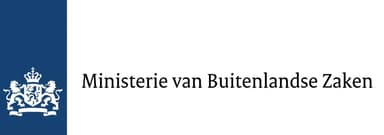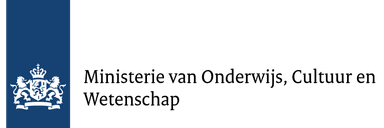Have we met? humans and hon-humans on common ground
A three-episode podcast expands on the exhibition themes with the help of podcast producer Wineke van Muiswinkel. Episode one explores the Zoöp Het Nieuwe Instituut, followed by future Zoöp Bodemzicht, concluding with the North sea, where a Zoöp could significantly improve sea life.
Have we met? humans and non-humans on common ground, is the title of the presentation by Het Nieuwe Instituut at the 23rd Triennale Milano International Exhibition. A three-episode podcast expands on the exhibition themes with the help of podcast producer Wineke van Muiswinkel. She will meet artists, designers and researchers who are participating in the exhibition, to hear how they approach the questions of our co-existince with animals and plants in their own practice.
"Imagine a world where humans and non-humans live and work together as equals. Is that possible? What are animals and plants trying to tell us? In the podcast Have we met? Humans and non humans on common ground by Het Nieuwe Instituut, we will find out what it takes to co-exist and change the planet."
From artificial intelligence observing life to the first zoöp in the world and climate farming. Fascinating new life forms on decommissioned oil rigs and the problematic use of minerals needed for the energy transition. All of our actions touch the life of other life forms and if we seriously take their interest to heart, we might change our course. If you listen to The North Sea, the spiders and the fungi you would learn more about our mutual existence. And sharing their knowledge would make us different people.
The exhibition Have we met? Humans and non-humans on common ground is on show in Milan from 15 July to 11 December 2022. Het Nieuwe Instituut is commissioned by the Netherlands' Ministry of Education, Culture and Science to curate the Dutch pavilion to the 23rd Triennale Milano International Exhibition.
Episode 1
Can machines help us to look at life from a different perspective? And what do we need to change in our organizations and companies if we take the interests of other life forms just as serious as our own human ambitions?
On international Earth Day, 22 April 2022, Het Nieuwe Instituut became the world's first Zoöp. A revolutionary first step to make the interests of non-human life part of its organisational decision-making. In this first episode Wineke explores the Zoöp Het Nieuwe Instituut and meets with Klaas Kuitenbrouwer, researcher and curator at Het Nieuwe Instituut, who was one of the co-founders of the idea of a zoöp. And talks to Theun Karelse, an artist with a broad interest in landscape and technology. Together with the artist Ian Ingram he shares an interest in robots and technology as a way to interact and communicate with nature and from this they started to work on their project Deep Steward. This is an AI programme that develops its own logic for categorising the living environment it observes through a camera.
Episode 2
If you take a closer look at life, you will see that humans are not the only ones on the planet. There are millions of other beings, animals and plants trying to make a living. They have been doing it for a while and perhaps know a thing or two more than we do.
In the second episode Wineke will visit the climate farmers of Bodemzicht and the artist Julian Abraham "Togar" who was inspired by their mission. Climate farmers Anne van Leeuwen and Ricardo Cano Mateo founded their regenerative farm Bodemzicht in the eastern part of The Netherlands only two years ago. Their aim is to improve conditions for all life, starting by creating a living soil, learning by doing, and sharing the process with others. The artist Togar came to The Netherlands at the beginning of the pandemic from Indonesia, for a residency at the Rijksacademy in Amsterdam. He was inspired by his visit to Bodemzicht to create an audiovisual work using a continuous conversation to stimulate new perspectives on human and non-human interaction.
Episode 3
There is unexpected life in places you will probably never see. Under water, on the seabed of the North Sea, and even on deserted oil rigs. How can we support that life? And what happens in other parts of the world when we build wind turbines here at sea?
In the third episode Wineke dives into the North Sea with marine researcher Fiona Middleton and socio-environmental researcher Darko Lagunas. Darko is part of the Embassy of the North Sea: a group of artists, researchers, lawyers and activists that want the North Sea to become a real actor by listening to the political voices of things, plants, animals, microbes and people in and around the North Sea. Fiona Middleton studies marine life everywhere. Wineke talked to her on the phone to discuss her research of a cluster of five decommissioned oil rigs just off the coast of the Netherlands.
This project was made possible thanks to:
 Ministerie van Buitenlandse Zaken
Ministerie van Buitenlandse Zaken Ministerie van OCW
Ministerie van OCW